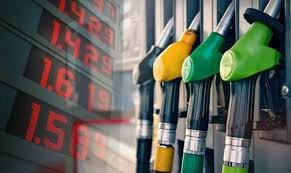The prices of fuel in Ghana have gone up following the continuous depreciation of the Ghana cedi.
The Oil Marketing Companies (OMCs) have begun adjusting prices at the pumps.
GOIL was the first to adjust prices after most OMCs kept theirs unchanged for about a week, with other OMCs expected to follow suit.
According to reports, a litre of petrol is now selling at GH¢13.38, up from GH¢12.99 on September 2, 2025, while Diesel has also increased to GH¢14.20 per litre, from GH¢13.90.
Reports suggest prices should have gone up by about 6% per litre from September 16.
COMAC has explained that the main reason for the adjustment is the depreciation of the Ghana cedi against the US dollar.
The cedi fell from GH¢11.20 to GH¢12.07 to the dollar during the review period, which is a 7.76% drop.
COMAC explained, “The decline is primarily due to strong demand for the dollar for imports ahead of the festive season”.
However, on the global market, crude oil and refined petroleum product prices fell petrol by 2.52%, diesel by 4.12%, and LPG by 2.69%.
The Ghana cedi has come under pressure since the beginning of August due to what some market players describe as a limited supply of dollars on the market.
Meanwhile, Dr Johnson Asiama, the Bank of Ghana Governor, has said the Ghana cedi still remains one of the best-performing currencies globally despite the slowdown in remittance inflows.
The BoG Governor highlighted that remittances have not been as strong as in previous periods, but the impact on the cedi’s performance has been confined.
According to Dr Johnson Asiama, the resilience of the cedi is attributed to the sound monetary policy, improved foreign-exchange reserves and tighter regulatory oversight.
Speaking at the opening of the Monetary Policy Committee meeting on September 15, 2025, Dr Johnson Asiama explained, “Despite the seasonal pressures and a slowdown in remittance inflows in recent weeks, the cedi remains one of the strongest currencies globally. Year-to-date, it has appreciated by about 21% as of September 12”.
“External buffers have strengthened. For the first eight months of the year, Ghana recorded a trade surplus of US$6.2 billion, underpinned by robust gold exports and higher cocoa receipts. Gross international reserves stood at US$10.7 billion in August, covering about 4½ months of imports”, he added.
Dr Johnson Asiama added that the cedi is performing alongside other currencies like the Russian ruble, Swedish krona, Norwegian krone, Swiss franc, euro and the British pound.
Additionally, President John Dramani Mahama has said his government will make sure that any depreciation that occurs in the Cedi is within a margin of about 5% per annum.
According to John Mahama, the recent currency fluctuations are part of a natural adjustment process and not a sign of renewed instability.
Speaking at his maiden media encounter on Wednesday, September 10, John Mahama stated, “I believe that it is about stopping the rapid depreciation of the currency. When you have steep depreciation of about like we had in 2024, 25% depreciation in the currency in the first half of the year, it makes planning difficult. And so yes, Bank of Ghana, BoG, has been intervening in the forex market, but they’ve withdrawn,” he said.
Mahama added, “The Cedi is making an adjustment and I believe that it will settle at a certain rate and we’ll make sure that any depreciation that occurs in the value of the Cedi is within a margin of about 5% per annum”.
See the post below:
Government has secretly increased fuel prices this morning….. but we’ve caught them pant down.
— Gen. Buhari (@Gen_Buhari_) September 23, 2025
Diesel was 13.38 but has magically increased to Ghc14.20 this dawn. pic.twitter.com/1p1v9VWg1q

